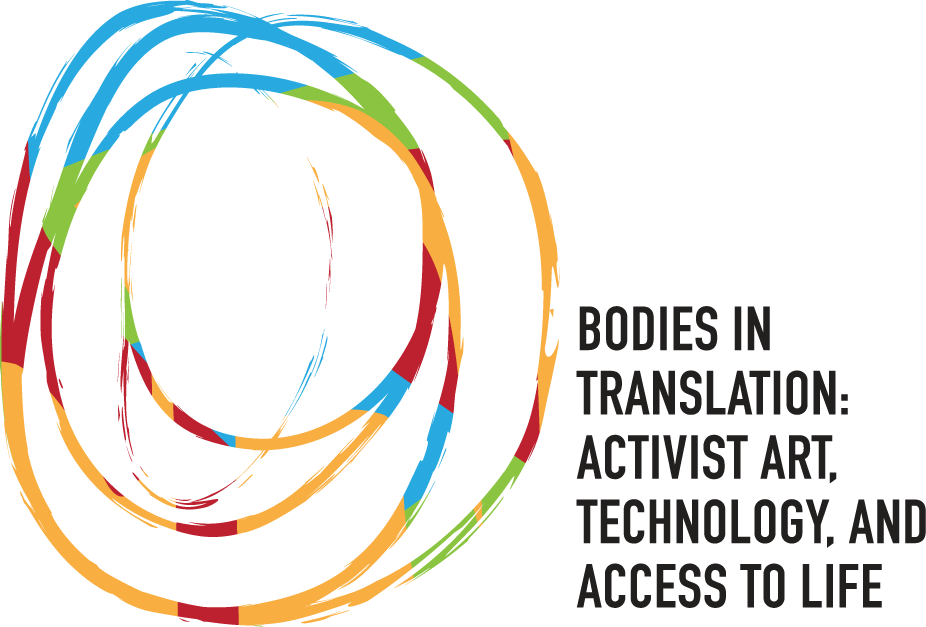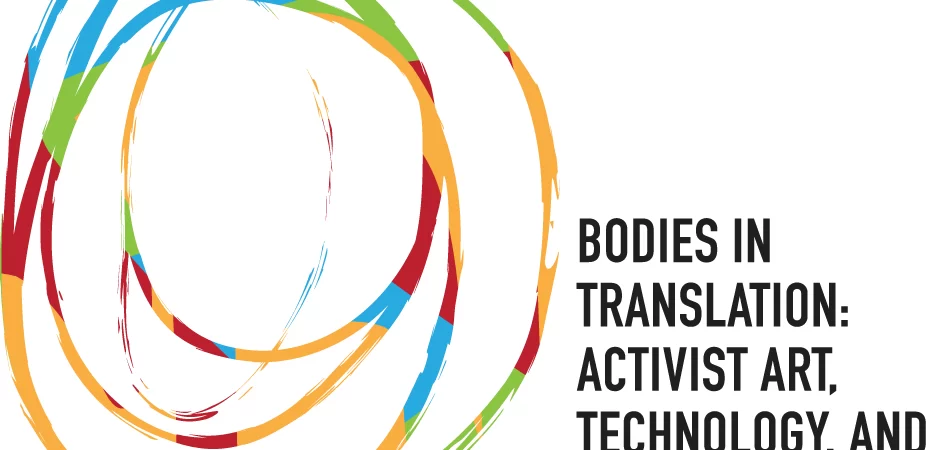Special Issue “Rethinking Artful Politics: Bodies of Difference Remaking Body Worlds”
A special issue of Social Sciences (ISSN 2076-0760).
Deadline for manuscript submissions: 30 June 2022.
Special Issue Editors
Interests: feminist; participatory and arts-based research; partnering with arts, environmental, disability, aging, healthcare
Interests: arts and culture; cultural representations of disability; leadership and community building; intersectional activist movements
Interests: disability and embodiment studies
Special Issue Information
Dear Colleagues,
Art orients to (re)worlding in affective, cultural, imaginative, and justice-attuned (re)ordering ways, and in so doing (re)visions/activates/produces/propels transformation with ripple effects through assemblages at multiple scales—local, regional, national, transnational. Arts that lead with/center/desire difference prefigure and materialize an infinite array of lived experiences into new aesthetics and possibilities for world-making. Art practices, performances, exhibitions, curatorial practices and documentation artifacts are spaces for cultural expression and resistance, imagining and enacting social justice, offering rich spaces for political possibilities. Where there is art, there is life such that access to art is access to life as art expresses and ciphers diverse and divergent materialities and futurities.
This call is inspired by Bodies in Translation: Activist Art, Technology and Access to Life (BIT), a research project based in Canada at the University of Guelph with projects at Trent University and Ryerson University, among many universities and arts organizations. Research at Bodies in Translation is animated by two guiding propositions: that we incite and catalyze generative collaborations among artist and academics across disciplinary, sectorial, cultural, and other divides; and that we centralize culturally, cognitively, affectively, and physically diverse artist practitioners as members of communities whose voices and self-representations have been marginalized from mainstream social discourses, cultural landscapes and art institutions across the land now called the province of Ontario and Canada.
For this special issue, we seek theoretical, pedagogical, methodological, experimental/experiential, research-driven, art-based submissions, public scholarship, and other manuscripts exploring artistic processes and practices that prefigure and/or materialize new worlds and center a politics of difference (e.g. Indigenous, Black, Persons of Colour, d/Deaf, disabled, Mad, aging, fat, racialized, queer, trans, class). We understand “art” broadly and expansively, as including the creation of new aesthetics, methodologies/artful methods of inquiry (or ways of asking questions) futurities, politics, and political possibilities as well as performance, installation, curation, audience reception, and model practices. Similarly, we understand “politics” broadly and expansively, as of opposition, resistance, redistribution, movement(s), intervention(s), assemblage within relations of power visible and invisible for equity and/or world-(re)making. We welcome proposals that address methodologies and process, including social science arts-based research creation and humanities studio-based art and the intersection of the two, and impact broadly and at diverse scales — impact for the artist/ art generators themselves, their communities and audiences, curational practice, including also collaborations, partnerships, and policies. We especially welcome articles that include and/or incorporate perspectives and voices of non-academic partners because we understand that partnerships comprise art generation, curation and production. Articles related to the following with attention to politics are welcome:
- Accessibility/Critical Access
- Aesthetics which center difference (Indigenous, Black, Persons of Colour, d/Deaf, disability, mad, queer, fat, youth, etc.)
- Activist arts/Activist arts interventions
- Arts broadly conceived to encompass dance, movement, visual, audio, theatre, performance, etc. and their multidisciplinarities, hybridities, and/or fusions
- Indigenous arts
- Decolonizing arts practices, presentations, methodologies
- Unsettling settler discourses, institutions, symbols, culture
- Aging arts
- Black arts
- d/Deaf arts
- Disability arts
- e/Elder arts
- Mad arts
- Queer arts
- Feminist arts
- Graffiti arts
- Public murals
- Street arts
- Youth arts
- Community arts
- Performance arts
- Post-human conceptions of arts and politics
- Community-campus partnerships
- Arts-based research
- Research creation
- Audience reception
- Relaxed performance and other disability cultural practices
- Arts and citizenship
- Arts and labour partnerships/engagement
- Arts and subaltern counterpublics
- Coalition building/Change-making/Mobilizing
- Affective dimensions of art and politics
- Diverse spaces and spatialities for arts practices, rehearsal, performance, installation
- Authorship and ownership in creative, community methodologies
- Change making, disrupting, materializing of new practices, policies within communities, institutions, the state
- Curatorial practice (Indigenous, Black, Aging, Crip, d/Deaf, Fat, Mad, Youth etc.)
- Political openings, possibilities within and/or emerging from arts practice, performance, installation, incubators, curation, reception
- Counterhegemonic narratives in/through art
- Art making and new audiences
- New voices of art making
- Political relationships, relationship-building, coalitions, mobilizing across art and community boundaries (intercity, intercommunities, regional, national, transnational)
- Documenting and cataloguing art (politics thereof, new renderings, new practices)
- Resisting, changing, reordering power relations
- Democratizing cultural production
Proposed abstracts (300-500 words) for research articles and author CVs indicating research areas can be emailed with the subject line “Rethinking Artful Politics” to Drs. Changfoot, Chandler and Rice c/o Marnie Eves, Administrative Assistant, Re•Vision: The Centre for Art and Social Justice, <revision@uoguelph.ca>, by the deadline of November 12, 2021. Abstracts should include the focus/plan for the article (e.g., proposed research question, methodology(ies), anticipated findings, discussion, significance, and references for any work cited in the abstract), authors (noting the corresponding author, if more than one author), affiliations and email addresses. Submissions for consideration for inclusion in the special issue will undergo a multi-stage process of peer-review, beginning with an initial review by the guest editors. Contributors will be notified of the decision on their abstract by early January 2022. Acceptance of an abstract does not guarantee inclusion in the special issue.
Dr. Nadine Changfoot
Dr. Eliza Chandler
Dr. Carla Rice
Guest Editors

Manuscript Submission Information
Manuscripts should be submitted online at www.mdpi.com by registering and logging in to this website. Once you are registered, click here to go to the submission form. Manuscripts can be submitted until the deadline. All papers will be peer-reviewed. Accepted papers will be published continuously in the journal (as soon as accepted) and will be listed together on the special issue website. Research articles, review articles as well as short communications are invited. For planned papers, a title and short abstract (about 100 words) can be sent to the Editorial Office for announcement on this website.
Submitted manuscripts should not have been published previously, nor be under consideration for publication elsewhere (except conference proceedings papers). All manuscripts are thoroughly refereed through a double-blind peer-review process. A guide for authors and other relevant information for submission of manuscripts is available on the Instructions for Authors page. Social Sciences is an international peer-reviewed open access monthly journal published by MDPI.
Please visit the Instructions for Authors page before submitting a manuscript. The Article Processing Charge (APC) for publication in this open access journal is 1200 CHF (Swiss Francs). Submitted papers should be well formatted and use good English. Authors may use MDPI’s English editing service prior to publication or during author revisions.
Keywords
- Art and aesthetics (art and aesthetics being understood broadly and expansively, especially art that leads with/centers/desires difference)
- Politics and Political Possibilities
- Bodies remaking bodyworlds
- Centring bodies of difference (Indigenous, Black, Persons of Colour, Aging, d/Deaf, Disabled, e/Elder, Mad, Queer, Trans, Class)
- Social Justice

